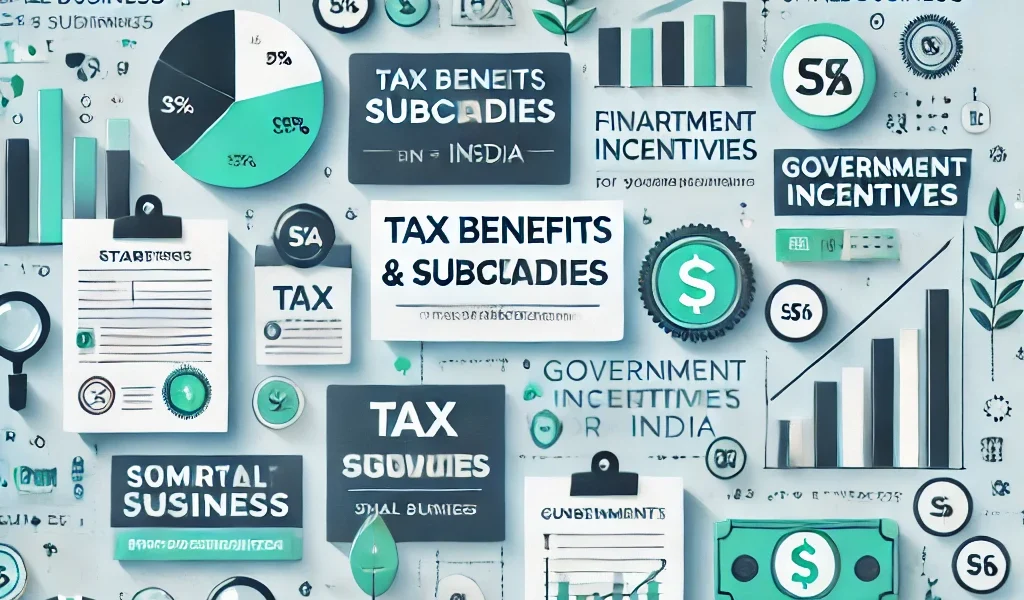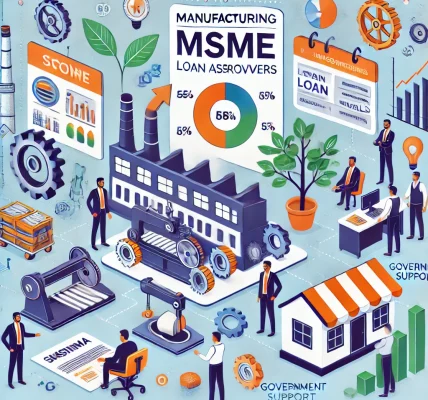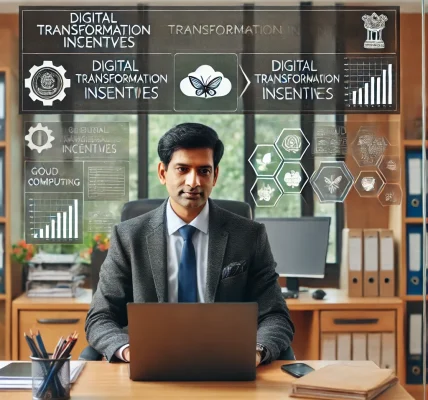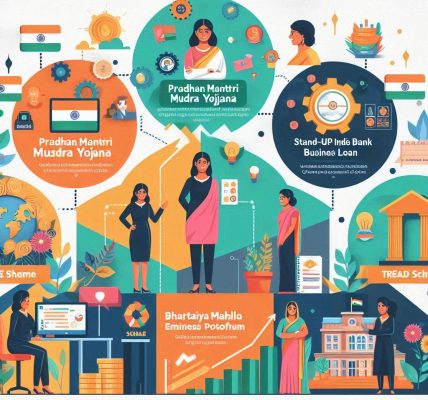Introduction
Startups and Micro, Small, and Medium Enterprises (MSMEs) are the backbone of India’s economy, contributing significantly to employment, innovation, and GDP growth. To support these businesses, the Government of India offers various tax benefits, exemptions, and subsidies aimed at easing financial burdens and encouraging growth.
In this comprehensive guide, we will explore the top tax benefits and subsidies available for startups and MSMEs in India in 2025, including eligibility criteria and how to apply.
Tax Benefits for Startups and MSMEs
1. Income Tax Exemption under Section 80-IAC
To encourage entrepreneurship, the Indian government offers income tax exemptions to eligible startups under Section 80-IAC of the Income Tax Act.
Key Features:
- Eligible startups can claim a 100% tax exemption on profits for 3 consecutive years out of the first 10 years since incorporation.
- This benefit helps startups reinvest their earnings into business expansion.
Eligibility Criteria:
- The startup must be recognized by the Department for Promotion of Industry and Internal Trade (DPIIT).
- The entity should be incorporated as a Private Limited Company (PLC) or Limited Liability Partnership (LLP).
- The turnover should not exceed INR 100 crore in any of the preceding financial years.
- The startup should be engaged in innovation, development, or improvement of products, processes, or services.
How to Apply:
- Register your startup on the Startup India Portal.
- Obtain DPIIT Recognition.
- File an application with the Inter-Ministerial Board (IMB) for approval.
- Once approved, claim the tax exemption while filing income tax returns.
2. Reduced Tax Rate for MSMEs (Section 115BA)
To provide tax relief to MSMEs, the government has reduced corporate tax rates for small businesses.
Key Features:
- Companies with an annual turnover of up to INR 400 crore can avail of a reduced tax rate of 25% (instead of the usual 30%).
- Newly incorporated manufacturing companies (registered after October 1, 2019) can opt for an even lower tax rate of 15% under Section 115BAB.
Eligibility Criteria:
- The business should be registered as an MSME under the Udyam Registration.
- The turnover should be within the prescribed limits.
- The company should comply with filing tax returns and GST regulations.
How to Apply:
- File your corporate tax returns (ITR-6) under the Income Tax Act.
- Declare turnover details and opt for the concessional tax rates.
3. Tax Rebate Under Presumptive Taxation (Section 44AD & 44ADA)
The government provides relief to small businesses and professionals through presumptive taxation schemes.
Key Features:
- MSMEs with turnover up to INR 2 crore can declare profit at 8% (for non-digital transactions) or 6% (for digital transactions) of turnover and pay tax accordingly under Section 44AD.
- Professionals with annual gross receipts up to INR 50 lakh can declare 50% of their income as profit and pay tax on the remaining under Section 44ADA.
- No need to maintain detailed books of accounts.
Eligibility Criteria:
- The business must be a proprietorship, HUF, or partnership firm.
- Digital transactions should be promoted to avail a lower tax rate.
How to Apply:
- Opt for presumptive taxation while filing income tax returns (ITR-4).
4. GST Benefits for MSMEs & Startups
The government offers several GST-related benefits to reduce compliance burdens.
Key Benefits:
- GST Composition Scheme: MSMEs with turnover up to INR 1.5 crore can opt for a flat GST rate of 1% – 6% and avoid complex tax calculations.
- GST Exemption: Businesses with turnover below INR 40 lakh (for goods) and INR 20 lakh (for services) are exempt from GST registration.
- Quarterly Return Filing: Small businesses can file GST returns on a quarterly basis, reducing paperwork.
How to Apply:
- Register for GST on the GST portal and choose the relevant schemes.
Government Subsidies for Startups and MSMEs
1. Credit Linked Capital Subsidy Scheme (CLCSS)
The CLCSS provides financial assistance to MSMEs for technology upgradation.
Key Features:
- 15% capital subsidy on institutional credit up to INR 1 crore.
- Encourages MSMEs to adopt modern technology.
How to Apply:
- Apply through SIDBI or Primary Lending Institutions (PLIs).
2. MUDRA Loan Scheme
The Pradhan Mantri Mudra Yojana (PMMY) provides financial assistance to micro-businesses.
Loan Categories:
- Shishu (up to INR 50,000)
- Kishor (INR 50,000 – 5 lakh)
- Tarun (INR 5 lakh – 10 lakh)
How to Apply:
- Apply through banks, NBFCs, and microfinance institutions.
3. Stand-Up India Scheme
This scheme provides financial support to women entrepreneurs and SC/ST entrepreneurs.
Key Features:
- Loans between INR 10 lakh – 1 crore.
- Focus on manufacturing, trading, and service sectors.
How to Apply:
- Apply via Stand-Up India portal or participating banks.
Conclusion
The Indian government offers multiple tax benefits and subsidies to reduce financial burdens on startups and MSMEs, allowing them to focus on growth and innovation. By leveraging these schemes, businesses can save taxes, receive financial aid, and boost their profitability.
To maximize benefits, startups and MSMEs should stay updated on government policies, file tax returns on time, and ensure proper compliance with regulations.




